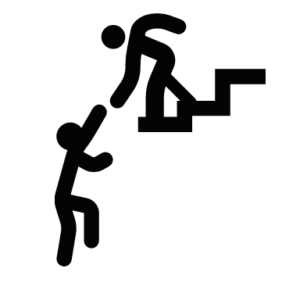 Helping verbs (sometimes called auxiliary verbs) are, as the name suggests, verbs that help another verb. They provide support and add additional meaning. Here are some examples of helping verbs in sentences:
Helping verbs (sometimes called auxiliary verbs) are, as the name suggests, verbs that help another verb. They provide support and add additional meaning. Here are some examples of helping verbs in sentences:
- By 1967, about 500 U.S. citizens had received heart transplants.
- While received could function on its own as a complete thought here, the helping verb had emphasizes the distance in time of the date in the opening phrase.
- Better immunosuppression management in transplant operations has yielded better results.
- This time, the helping verb adds clarity to the main verb yielded. Without it, the sentence would be difficult to understand.
- Researchers are finding that propranolol is effective in the treatment of heartbeat irregularities.
- The helping verb are adds immediacy to the verb finding.
Let’s look at some more examples to examine exactly what these verbs do. Take a look at the sentence “I have finished my dinner.” Here, the main verb is finish, and the helping verb have helps to express tense. Let’s look at two more examples:
- Do you want tea?
- Do is a helping verb accompanying the main verb want, used here to form a question.
- He has given his all.
- Has is a helping verb used in expressing the tense of given.
A list of verbs that (can) function as helping verbs in English is as follows:
- be (and all its forms)
- can, could
- dare
- do (and all its forms)
- have (and all its forms)
- may, might, must
- need
- ought
- shall, should
- will, would
The negative forms of these words (can’t, don’t, won’t, etc.) are also helping verbs.
Practice
Identify the helping verbs in the sentences below:
- Do you want Tim’s shift tonight?
- Cassandra couldn’t afford to give up.
- Richard was exercising when Barbara finally found him.
The following table shows examples of the helping verbs in standard English. Some helping verbs have more than one example as they can be used in multiple ways.
| Helping Verb | Examples |
|---|---|
| be | He is sleeping. They were seen. |
| can | I can swim. Such things can help. |
| could | I could swim. That could help. |
| dare | How dare you! |
| do | You did not understand. |
| have | They have understood. |
| may | May I stay? That may take place. |
| might | We might give it a try. |
| must | You must not mock me. It must have rained. |
| need | You need not water the grass. |
| ought | You ought to play well. |
| shall | You shall not pass. |
| should | You should listen. That should help. |
| will | We will eat pie. The sun will rise tomorrow at 6:03. He will make that mistake every time. |
| would | Nothing would accomplish that. After 1990, we would do that again. Back then we would always go there |